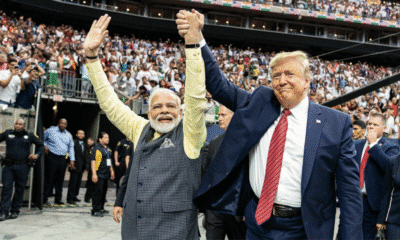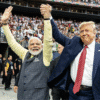Economy
Significant areas of concern in India’s economy growth: RBI Governor
While the Indian economy is on its way to achieving the projected growth of 9.5% in 2021-22, there are still significant areas of concern, says RBI Governor Shaktikanta Das. He said that given the uncertainty brought about by the omicron variant, continued policy support was warranted. And this should be for a durable, broad-based and self-sustaining recovery.
In the minutes of the Monetary Policy Committee (MPC), Das highlighted that private consumption – the mainstay of aggregate demand with a share of around 55% – is languishing below its level recorded two years ago. “It suggests we still have a distance to go in nurturing a more durable recovery.”
The governor said risks stalking the global economy have amplified with the rapid spread of the virus mutations, including the omicron variant. Das highlighted that these developments have two major takeaways for central bankers.
“First, uncertainty is emerging as the only certainty with which central bankers will have to deal with in the period ahead. Second, since monetary policy is at an inflection point, the journey of monetary policy which is hardly smooth in the best of times is going to get more challenging,” he said.
Das noted that the Indian economy is facing several headwinds emanating from global factors and some old ones getting prolonged compared with the initial assessment, coupled with new ones.
The RBI government acknowledged the growing uncertainty regarding the evolving global macroeconomic outlook. “On the domestic front, even as the prospects for economic activity are improving, there is still a slack with key drivers like private consumption remaining well below their pre-pandemic levels.”
As such, Das said continued policy support is warranted for a durable, broad-based and self-sustaining rebound. This is a must to nurture revival in sectors which are lagging and to safeguard those which are exposed to the evolving headwinds.
Also Read: Content creator contributes 2 month’s earnings to Tamil Nadu CM COVID Relief Fund
The RBI highlighted that the supply disruptions and other bottlenecks which were earlier anticipated to resolve by 2021-end have gained additional shelf-life stretching into 2022. “Global trade, after rebounding strongly in the first half of 2021, is losing momentum on the back of stretched supply chain and logistics issues, shortages of key components and slowdowns in key regions. The emergence of the omicron variant may cast some shadow on the momentum of contract-intensive services that were just showing signs of recovery in recent months.”
Das said the threat of omicron is also imparting additional volatility to the financial markets.











































Pingback: Life insurance industry is seeing a hike in rate, by top private life insurers.